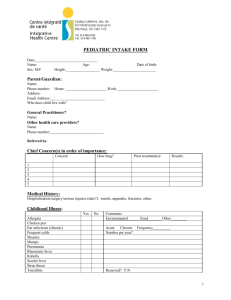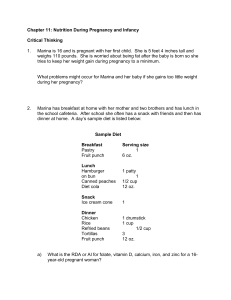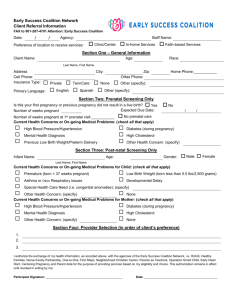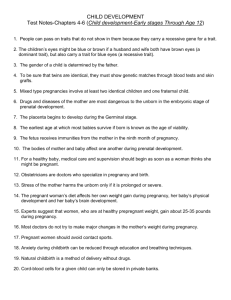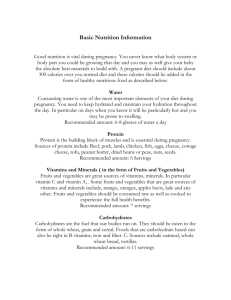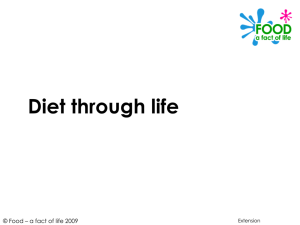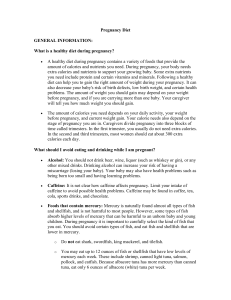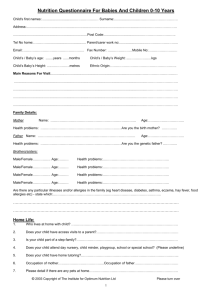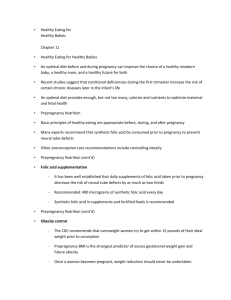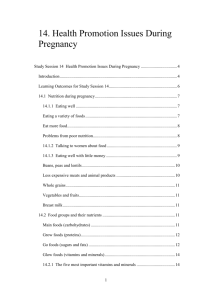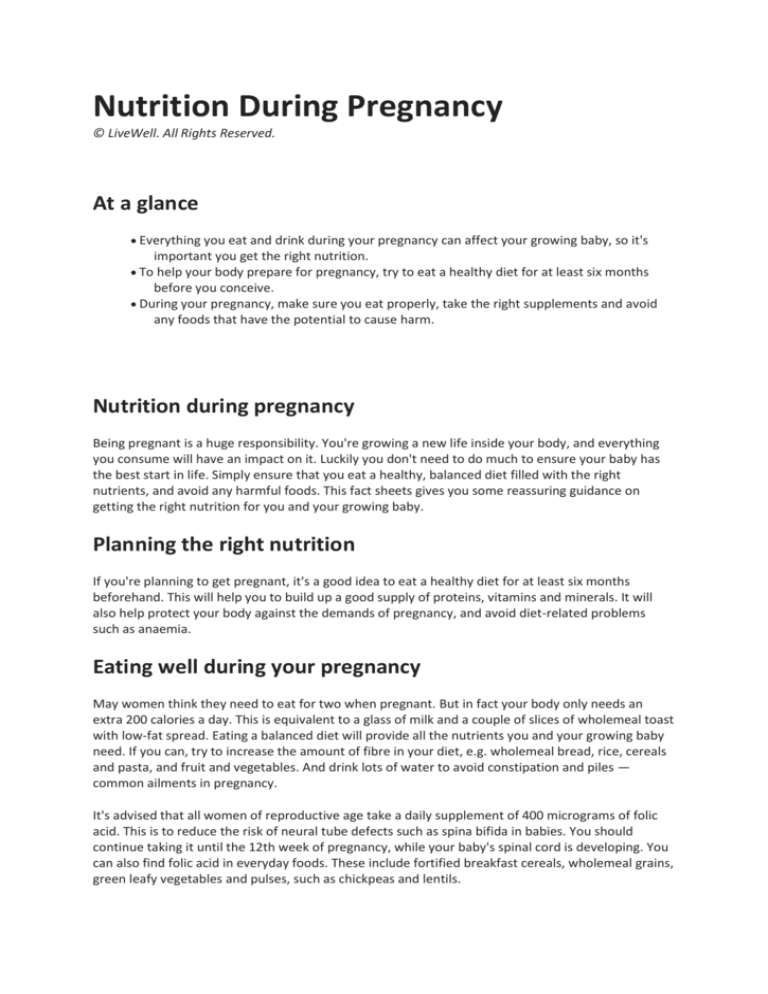
Nutrition During Pregnancy
© LiveWell. All Rights Reserved.
At a glance
Everything you eat and drink during your pregnancy can affect your growing baby, so it's
important you get the right nutrition.
To help your body prepare for pregnancy, try to eat a healthy diet for at least six months
before you conceive.
During your pregnancy, make sure you eat properly, take the right supplements and avoid
any foods that have the potential to cause harm.
Nutrition during pregnancy
Being pregnant is a huge responsibility. You're growing a new life inside your body, and everything
you consume will have an impact on it. Luckily you don't need to do much to ensure your baby has
the best start in life. Simply ensure that you eat a healthy, balanced diet filled with the right
nutrients, and avoid any harmful foods. This fact sheets gives you some reassuring guidance on
getting the right nutrition for you and your growing baby.
Planning the right nutrition
If you're planning to get pregnant, it's a good idea to eat a healthy diet for at least six months
beforehand. This will help you to build up a good supply of proteins, vitamins and minerals. It will
also help protect your body against the demands of pregnancy, and avoid diet-related problems
such as anaemia.
Eating well during your pregnancy
May women think they need to eat for two when pregnant. But in fact your body only needs an
extra 200 calories a day. This is equivalent to a glass of milk and a couple of slices of wholemeal toast
with low-fat spread. Eating a balanced diet will provide all the nutrients you and your growing baby
need. If you can, try to increase the amount of fibre in your diet, e.g. wholemeal bread, rice, cereals
and pasta, and fruit and vegetables. And drink lots of water to avoid constipation and piles —
common ailments in pregnancy.
It's advised that all women of reproductive age take a daily supplement of 400 micrograms of folic
acid. This is to reduce the risk of neural tube defects such as spina bifida in babies. You should
continue taking it until the 12th week of pregnancy, while your baby's spinal cord is developing. You
can also find folic acid in everyday foods. These include fortified breakfast cereals, wholemeal grains,
green leafy vegetables and pulses, such as chickpeas and lentils.
Foods to avoid
Some foods pose a potential risk during pregnancy. So to be safe, avoid:
Liver and liver products such as pāté.
Lightly cooked or raw meat and eggs.
Soft, mould-ripened cheeses such as brie or camembert.
Cheeses made from unpasteurised milk.
Unwashed fruits, salad and vegetables.
It's also a good idea to cut down on:
Caffeine — the recommended amount is no more than 300 milligrams per day. This is
equivalent to about four average cups of instant coffee or 6 average cups of tea.
Alcohol — you're advised to consume no more than 1-2 units of alcohol, once or twice a
week.
With the right advice, you can easily ensure that you and your baby get a balanced diet that is
packed with the right nutrition. And you can look forward to enjoying a happy, healthy pregnancy.

